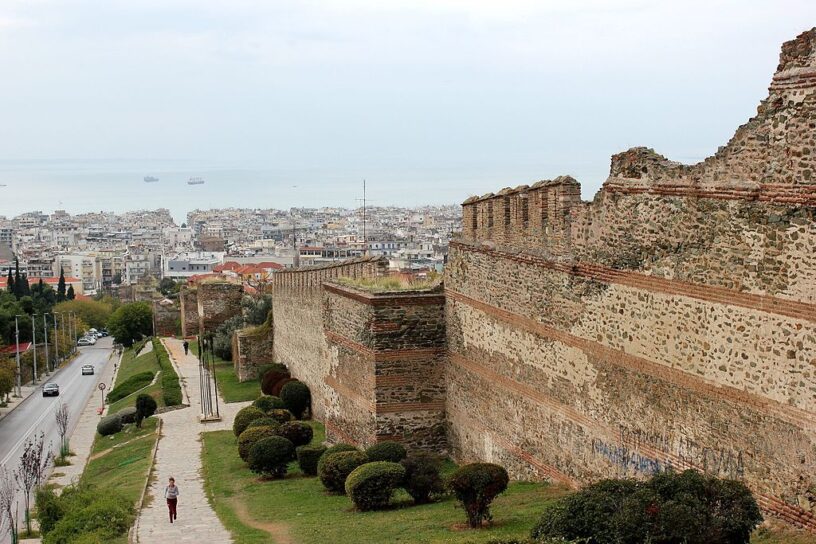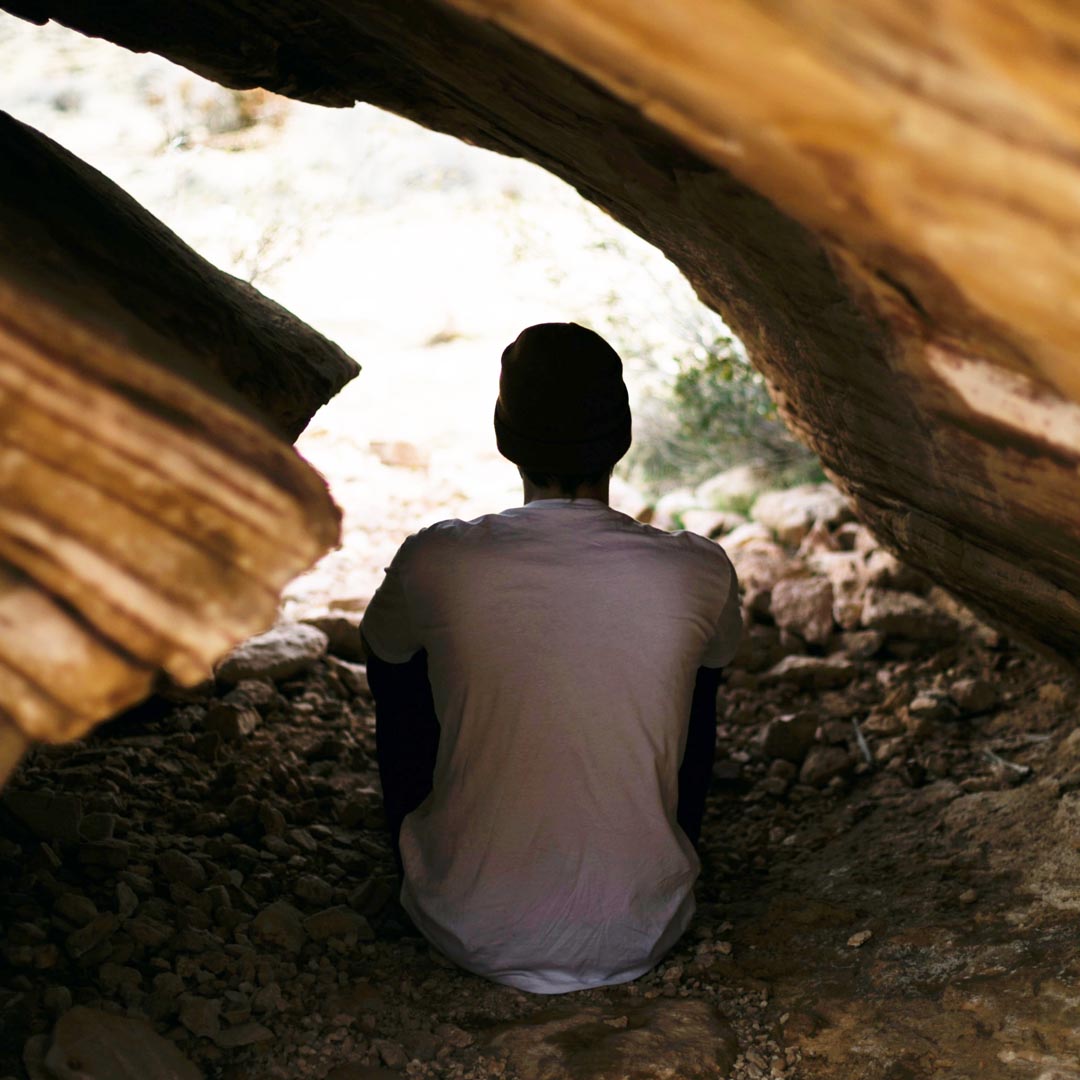
By Apostle Don McIndoo
In the year 315 B.C. when the Greek empire dominated the known world, the city of Thessalonica was founded by King Cassander. He named it after his wife, Thessalonike. The name implies “victory” in the Greek language. It was a city built on a harbor in the Aegean Sea. The city grew rapidly and became famous as a trade center.
After Macedonia fell to the Roman armies in 166 B.C. the city’s name was changed to the Latin, Thessalonica. It remained so to the time when Paulwas making his second missionary trip with Silas and Timothy. On this journey they traveled in Macedonia and Greece.
In the year A.D. 50, after being forced to leave Philippi, Paul and his two companions, Silas and Timothy, traveled about 100 miles southwest of Philippi to the city of Thessalonica. In this large city were many Jews, and they had a large synagogue where they met.
The Apostle Paul did as he was accustomed to doing, and for three consecutive weeks he met with them on the Sabbath and taught them about Jesus Christ and His teachings. A number of the Jews and Greeks who heard his message came to believe in Christ and His Gospel, as did also a number of the leading women of the city. Let’s read Acts 17:4: “And some of them believed, and consorted with Paul and Silas; and of the devout Greeks a great multitude, and of the chief women not a few.”
However, those Jews who did not accept Paul’s teachings became furious at both, the missionaries and those of their number who had accepted the teachings about Jesus and His gospel. The Jews gathered together a group of worldly and violent men who set the entire city into an uproar. They were directed to the home of Jason, one of the believers who had taken in the disciples.
When they did not find them in Jason’s home, they brought him before the city magistrates and made accusations against Jason and
his companions. Now in Acts 17 verse 9, we read: “And when they had taken security of Jason, and of the other, they let them go.”
Jason and his brethren, now believers, brought the three missionaries together at night and sent them on their way. They traveled several miles southward to the town of Berea. Here there was another Jewish synagogue. God blessed His servants, and they found a better situation than in Thessalonica. In Acts 17:11, 12 we read the following:
“These were more noble than those in Thessalonica, in that they received the word with all readiness of mind, and searched the scriptures daily, whether those things were so. Therefore many of them believed; also of honourable women which were Greeks, and of men, not a few.”
Now when the irate Jews in Thessalonica heard Paul was in Berea preaching the Word, they went down to Berea and stirred up the people against him. Good believers of Berea conducted him all the way south to Athens. Paul asked these men to tell Silas and Timothy to come meet him in Corinth.
When the three missionaries were together once more the Apostle Paul sent his young companion, Timothy, back to Thessalonica. He was to study the group of believers closely and report to the apostle their dedication and diligence in serving the Lord. The apostles were very pleased with the report given to them by T imothy in 1 Thessalonians 3:6-8:
“But now when Timotheus came from you unto us, and brought us good tidings of your faith and charity, and that ye have good remembrance of us always, desiring greatly to see us, as we also to see you: Therefore, brethren, we were comforted over you in all our affliction and distress by your faith: For nowwelive, if ye stand fast in the Lord.”
After the receipt of this report is when Apostle Paul wrote the letter of 1 Thessalonians and sent it to the brethren there in Thessalonica. That was probably in A.D. 51 or 52. It was undoubtedly one of the New Testament books to be written. The apostle told them of their great joy in their perseverance in the faith. He also gave them (and to us as well) instructions about correct Christian living:
“For God hath not called us unto uncleanness, but unto holiness. He therefore that despiseth, despiseth not man, but God, who hath also given unto us his holy Spirit. But as touching brotherly love ye need not that I write unto you: for ye yourselves are taught of God to love one another. And indeed ye do it toward all the brethren which are in all Macedonia: but we beseech you, brethren, that ye increase more and more; And that ye study to be quiet, and to do your own business, and to work with your own hands, as we commanded you; That ye may walk honestly toward them that are without, and that ye may have lack of nothing.” (1 Thessalonians 4:7-12)
It is very possible that Paul was told that a few of the elderly believers had passed away, and their descendants were worried about their future, so the Apostle Paul responds to this in Chapter 4, verses 13-17: “But I would not have you to be ignorant, brethren, concerning them which are asleep, that ye sorrow not, even as others which have no hope. For if we believe that Jesus died and rose again, even so them also which sleep in Jesus will God bring with him. For this we say unto you by the word of the Lord, that we which are alive and remain unto the coming of the Lord shall not prevent them which are asleep. For the Lord himself shall descend from heaven with a shout, with the voice of the archangel, and with the trump of God: and the dead in Christ shall rise first: Then we which are alive and remain shall be caught up together with them in the clouds, to meet the Lord in the air: and so shall we ever be with the Lord.”
In the fifth chapter of his first letter the apostle writes about the coming of our Lord, Jesus Christ. He ends those words with the admonition we find in verse eight: “But let us, who are of the day, be sober, putting on the breastplate of faith and love; and for an helmet, the hope of salvation.”
The second letter of Apostle Paul to the Thessalonians was written just a few months after his first letter. It was revealed to the apostle that false teachers were saying that the day of Christ’s return was at hand. So the apostle felt the need to respond and to tell the believers of those things that will take place before the Lord returns.
Let’s read 2 Thessalonians, chapter 2, verses 1-5: “Now we beseech you, brethren, by the coming of our Lord Jesus Christ, and by our gathering together unto him, That ye be not soon shaken in mind, or be troubled, neither by spirit, nor by word, nor by letter as from us, as that the day of Christ is at hand. Let no man deceive you by any means: for that day shall not come, except there come a falling away first, and that man of sin be revealed, the son of perdition; Who opposeth and exalteth himself above all that is called God, or that is worshipped; so that he asGod sitteth in the temple of God, shewing himself that he is God. Remember ye not, that, when I was yet with you, I told you these things?”
We in the Restoration know that “falling away” is speaking of the apostasy of Christ’s true church. The “man of sin” spoken of by the apostle refers to the Pope of the Catholic Church. The Apostle Paul continues with a simple instruction which is just as applicable to us as it was to the believers of Thessalonica:
“Therefore, brethren, stand fast, and hold the traditions which ye have been taught, whether by word, or our epistle. Now our Lord Jesus Christ himself, and God, even our Father, which hath loved us, and hath given us everlasting consolation and good hope through grace, Comfort your hearts, and stablish you in every good word and work.” (2 Thessalonians 2:15-17)
We will close with a reasonable demand of the Apostle Paul that the saints should be active and continue in their labors:
“For even when we were with you, this we commanded you, that if any would not work, neither should he eat. For we hear that there are some which walk among you disorderly, working not at all, but are busybodies. Now them that are such we command and exhort by our Lord Jesus Christ, that with quietness they work, and eat their own bread. But ye, brethren, be not weary in well doing.” (2 Thessalonians 3:10-13)




